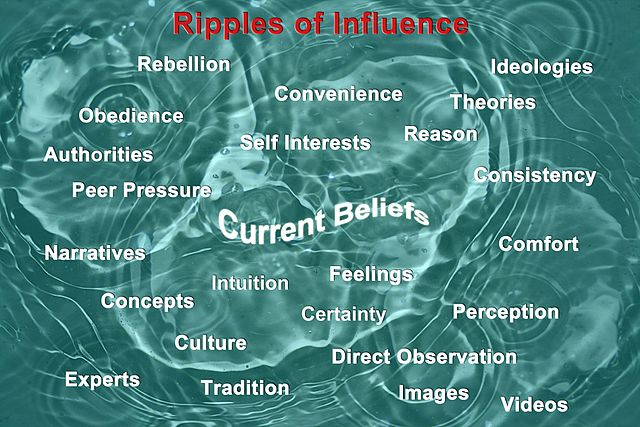Evidence for a proposition is what supports the proposition. It is usually understood as an indication that the supported proposition is true. What role evidence plays and how it is conceived varies from field to field.
These contrails at an airshow provide evidence regarding the aircraft's flight path as well as the weather conditions.
The balance scales seen in depictions of Lady Justice can be seen as representing the weighing of evidence in a legal proceeding.
An FBI Evidence Response Team gathering evidence by dusting an area for fingerprints
A belief is a subjective attitude that a proposition is true or a state of affairs is the case. A subjective attitude is a mental state of having some stance, take, or opinion about something. In epistemology, philosophers use the term "belief" to refer to attitudes about the world which can be either true or false. To believe something is to take it to be true; for instance, to believe that snow is white is comparable to accepting the truth of the proposition "snow is white". However, holding a belief does not require active introspection. For example, few individuals carefully consider whether or not the sun will rise tomorrow, simply assuming that it will. Moreover, beliefs need not be occurrent, but can instead be dispositional.
Philosopher Jonathan Glover warns that belief systems are like whole boats in the water; it is extremely difficult to alter them all at once (for example, it may be too stressful, or people may maintain their biases without realizing it).
We are influenced by many factors that ripple through our minds as our beliefs form, evolve, and may eventually change.
Image: Religion collage updated






